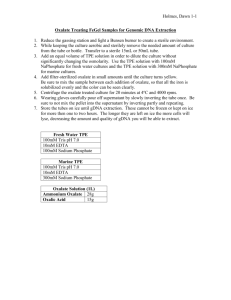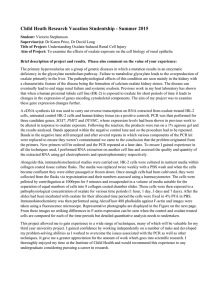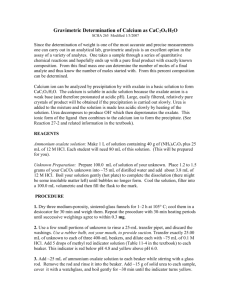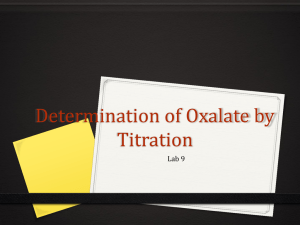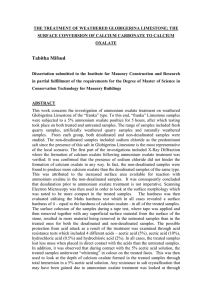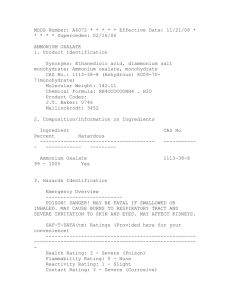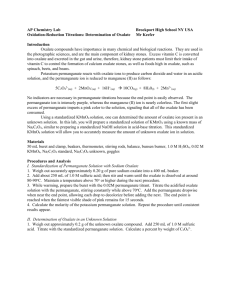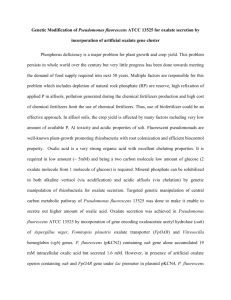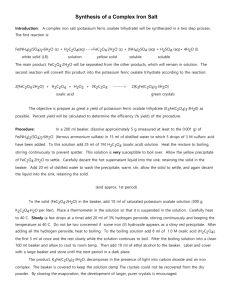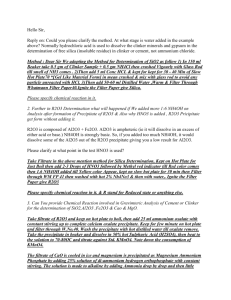Determining the mechanism by which the bacterium Oxalobacter
advertisement
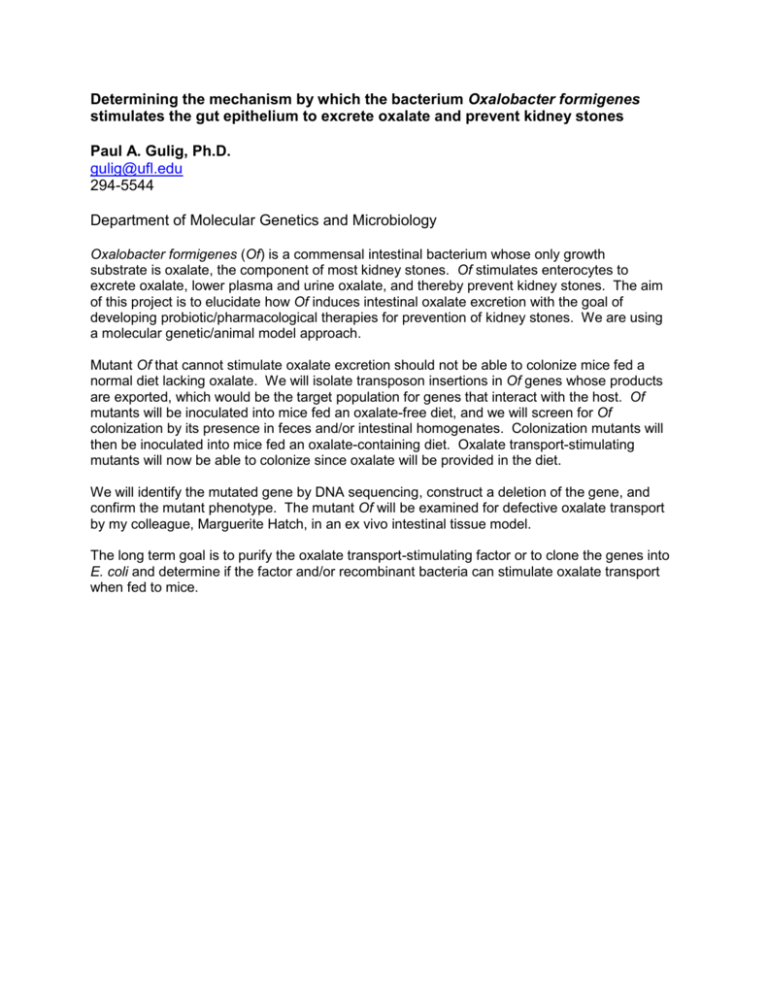
Determining the mechanism by which the bacterium Oxalobacter formigenes stimulates the gut epithelium to excrete oxalate and prevent kidney stones Paul A. Gulig, Ph.D. gulig@ufl.edu 294-5544 Department of Molecular Genetics and Microbiology Oxalobacter formigenes (Of) is a commensal intestinal bacterium whose only growth substrate is oxalate, the component of most kidney stones. Of stimulates enterocytes to excrete oxalate, lower plasma and urine oxalate, and thereby prevent kidney stones. The aim of this project is to elucidate how Of induces intestinal oxalate excretion with the goal of developing probiotic/pharmacological therapies for prevention of kidney stones. We are using a molecular genetic/animal model approach. Mutant Of that cannot stimulate oxalate excretion should not be able to colonize mice fed a normal diet lacking oxalate. We will isolate transposon insertions in Of genes whose products are exported, which would be the target population for genes that interact with the host. Of mutants will be inoculated into mice fed an oxalate-free diet, and we will screen for Of colonization by its presence in feces and/or intestinal homogenates. Colonization mutants will then be inoculated into mice fed an oxalate-containing diet. Oxalate transport-stimulating mutants will now be able to colonize since oxalate will be provided in the diet. We will identify the mutated gene by DNA sequencing, construct a deletion of the gene, and confirm the mutant phenotype. The mutant Of will be examined for defective oxalate transport by my colleague, Marguerite Hatch, in an ex vivo intestinal tissue model. The long term goal is to purify the oxalate transport-stimulating factor or to clone the genes into E. coli and determine if the factor and/or recombinant bacteria can stimulate oxalate transport when fed to mice.
